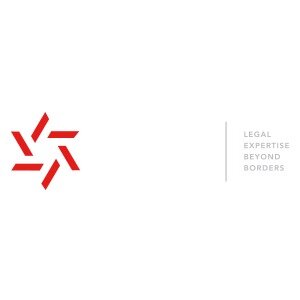Best Private Equity Lawyers in Qatar
Share your needs with us, get contacted by law firms.
Free. Takes 2 min.
Or refine your search by selecting a city:
List of the best lawyers in Qatar
About Private Equity Law in Qatar
Private equity involves investing in private companies or taking public companies private to restructure or grow their operations. In Qatar, private equity is a rapidly evolving sector that plays a significant role in fostering economic development and diversification in line with Qatar National Vision 2030. The country has seen increased interest from both local and international investors, particularly through its well-established investment vehicles and a business-friendly environment. The regulation of private equity activities in Qatar ensures transparent, secure, and fair operations aimed at protecting both investors and companies.
Why You May Need a Lawyer
There are several common situations where seeking legal advice is crucial in the field of private equity in Qatar:
- Conducting due diligence on target companies and investment opportunities.
- Structuring and negotiating investor agreements and partnership terms.
- Ensuring compliance with regulatory requirements set by Qatari authorities.
- Drafting and reviewing acquisition and exit agreements.
- Managing disputes between investors, partners, or company management.
- Understanding cross-border investment rules for foreign investors.
- Assisting with licensing or establishing private equity funds in Qatar.
- Guiding restructuring or recapitalization strategies.
Because private equity transactions are complex and involve significant legal and financial considerations, having an experienced lawyer can protect your interests and help you navigate local legal frameworks efficiently.
Local Laws Overview
Qatar's legal system for private equity is governed by national laws, regulations of the Qatar Financial Centre (QFC), and sometimes international law where applicable. Here are the key aspects to consider:
- Regulation and Oversight: Private equity fund activities are regulated mainly by the Qatar Financial Centre Regulatory Authority (QFCRA) and, to a lesser extent, by the Qatar Central Bank for specific financial matters.
- Formation of Funds: Private equity funds can be structured under Qatari law or within the QFC, which offers more flexibility and a common law framework appealing to international investors.
- Foreign Investment Rules: Qatar allows foreign investors in private equity, especially within the QFC, but national restrictions may apply in certain sectors. Understanding ownership and foreign investment limits is essential.
- Taxation: QFC-registered entities benefit from a competitive tax regime and access to a network of double taxation treaties, making it attractive for structuring private equity transactions.
- Compliance: Compliance with anti-money laundering, know-your-customer regulations, and reporting obligations is strictly enforced.
- Reporting and Disclosure: Transparency in fund management and periodic reporting to regulators and investors is required.
- Exit Strategies: Legal mechanisms for exits via initial public offerings, trade sales, or secondary buyouts must comply with local securities and competition laws.
Frequently Asked Questions
What is private equity and how is it regulated in Qatar?
Private equity refers to investing in privately held companies or buying out public companies to restructure and grow them. In Qatar, regulation is provided mainly by the Qatar Financial Centre Regulatory Authority, with additional oversight by relevant government agencies.
Can foreign investors participate in private equity in Qatar?
Yes, foreign investors can participate, especially through structures established in the Qatar Financial Centre, though some sectoral restrictions and approvals may apply.
How do I set up a private equity fund in Qatar?
Private equity funds can be established either under Qatari company law or via the QFC. The process involves obtaining the necessary licenses, fulfilling capital requirements, and meeting reporting standards.
Are there specific legal requirements for due diligence in Qatar?
Yes, thorough due diligence is legally expected, covering the financial, legal, and regulatory standing of the target company, as well as compliance with anti-money laundering laws.
What taxes apply to private equity funds in Qatar?
QFC-based entities generally enjoy favorable tax treatment, including a flat rate of 10 percent on locally-sourced profits and access to numerous double taxation agreements.
What exit routes are available for private equity investments in Qatar?
Exit routes include trade sales, secondary buyouts, and initial public offerings. Each route is subject to relevant securities and competition laws.
What are the main risks in private equity transactions in Qatar?
Risks include regulatory changes, sector-specific investment restrictions, currency fluctuations, and potential disputes among partners or with management.
How are disputes in private equity typically resolved in Qatar?
Disputes may be resolved through negotiation, mediation, arbitration (often in the QFC's courts), or the Qatari civil courts, depending on the agreement terms.
Are there any restrictions on sectors for private equity investments?
Yes, certain sectors such as oil and gas, defense, and real estate may have specific restrictions, particularly for foreign investors. Legal advice is essential to navigate sector-specific regulations.
Why is legal advice important for private equity in Qatar?
Legal advice ensures that all transactions comply with local laws, helps manage risks, protects investor interests, and addresses complex cross-border and regulatory considerations.
Additional Resources
For those seeking more information or legal support regarding private equity in Qatar, the following resources can be useful:
- Qatar Financial Centre - Offers information on company and fund formation, regulations, and registered service providers.
- Qatar Financial Centre Regulatory Authority - Provides guidelines, licensing information, and compliance requirements for funds and investment firms.
- Qatar Central Bank - Regulates financial institutions and certain investment activities outside the QFC.
- Ministry of Commerce and Industry - For company incorporation, sector-specific regulations, and general business law in Qatar.
- Qatar Chamber of Commerce and Industry - Can provide networking opportunities and business information relevant for private equity investors.
- Licensed local law firms - Experienced in private equity transactions, regulatory compliance, and dispute resolution.
Next Steps
If you require legal assistance in private equity in Qatar, consider the following steps:
- Define your objectives and gather relevant documents related to your investment or intended activity.
- Research and contact law firms or legal consultants with expertise in private equity and Qatari business law.
- Request an initial consultation to discuss your situation and obtain an overview of your legal options and likely costs.
- Ask questions about the legal process, timelines, compliance requirements, and potential risks in your transaction.
- Once you are confident in your chosen advisor, engage their services formally to protect your interests and manage your private equity activities effectively in Qatar.
Early legal advice can help you avoid regulatory pitfalls and maximize the success of your private equity ventures in Qatar.
Lawzana helps you find the best lawyers and law firms in Qatar through a curated and pre-screened list of qualified legal professionals. Our platform offers rankings and detailed profiles of attorneys and law firms, allowing you to compare based on practice areas, including Private Equity, experience, and client feedback.
Each profile includes a description of the firm's areas of practice, client reviews, team members and partners, year of establishment, spoken languages, office locations, contact information, social media presence, and any published articles or resources. Most firms on our platform speak English and are experienced in both local and international legal matters.
Get a quote from top-rated law firms in Qatar — quickly, securely, and without unnecessary hassle.
Disclaimer:
The information provided on this page is for general informational purposes only and does not constitute legal advice. While we strive to ensure the accuracy and relevance of the content, legal information may change over time, and interpretations of the law can vary. You should always consult with a qualified legal professional for advice specific to your situation.
We disclaim all liability for actions taken or not taken based on the content of this page. If you believe any information is incorrect or outdated, please contact us, and we will review and update it where appropriate.
Browse private equity law firms by city in Qatar
Refine your search by selecting a city.

















